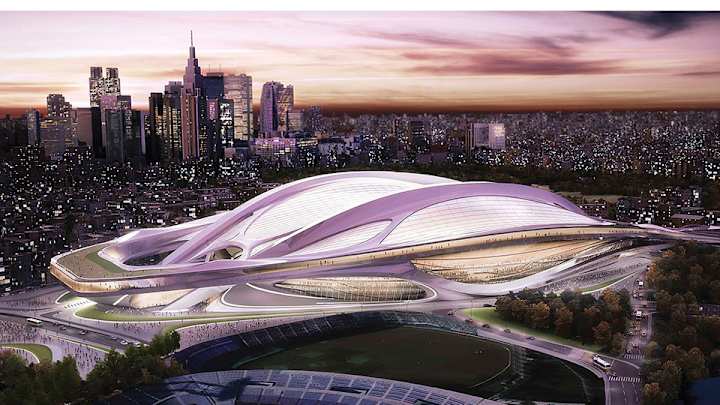Tokyo scraps design for 2020 Olympic stadium; bidding reopened

Japan Prime Minister Shinzo Abe announced Friday that the country has tossed out the design for National Stadium that would be built for the 2020 Summer Olympics amid spiraling costs.
Abe ordered a complete review of the plans and also opened the bidding process for the stadium.
Construction on the stadium, designed by architect Zaha Hadid, was scheduled to start in October on the site of the stadium built for the 1964 Summer Olympics at an estimated cost of $2 billion. That's a more than 50% increase of over previous projections from when Toyko first was awarded the games in 2013.
The project was expected to be completed in 2019 and was on track to be the most expensive stadium ever built.
"We have decided to go back to the start on the Tokyo Olympics-Paralympics stadium plan, and start over from zero," Abe said. "The cost has ballooned just too much ... I have been listening to the voices of the people and the athletes for about a month now, thinking about the possibility of a review. We will minimize the cost as much as we can and make one that is best and realistic."
Hadid’s proposed 80,000-seat stadium plan had a bicycle helmet-like design, with a ribbed roof on huge steel arches, movable seats, and was to have certain earthquake-resistant features.
The National Stadium was supposed to be the venue of the first Rugby World Cup in Asia, hosting the tournament’s first game, semifinals, and final.
“World Rugby is extremely disappointed by today’s announcement that the new National Stadium will not be ready to host Rugby World Cup 2019 matches despite repeated assurances to contrary from the Japan Rugby 2019 Organising Committee and Japan Sports Council,” Rugby World Cup organizing committee secretary-general Akira Shimazu said.
No replacement venue has been named for those games in the 2019 Rugby World Cup, but International Stadium Yokohama, which hosted the 2002 World Cup final, could be a candidate.
Zaha Hadid Architects said they designed a stadium that could be cost effective and could still “deliver the flexible and robust National Stadium that the Japan Sports Council requires.”
“It is not the case that the recently reported cost increases are due to the design, which uses standard materials and techniques well within the capability of Japanese contractors, and meets the budget set by the Japan Sports Council," Jim Heverin, project director of Zaha Hadid Architects said in a statement.
- Scooby Axson
